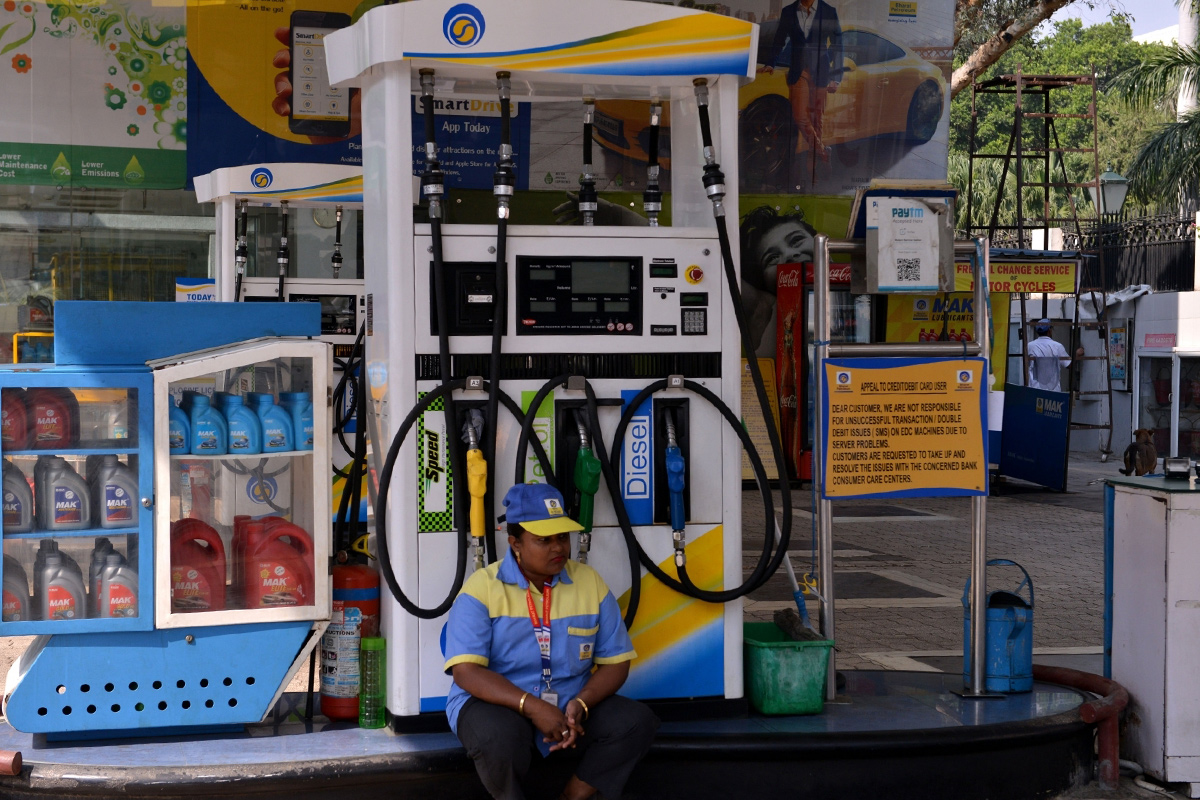Handloom fashion show at Bharat Tex 2025 attracts buyers from Europe, Australia
The event was organised at the amphitheatre in Bharat Mandapam as part of the Bharat Tex 2025 exhibition being held here from February 14-16.
Confronted with an unprecedented economic crisis, one that has severe political ramifications, Sri Lanka has announced fuel rationing for vehicles.

(Photo: IANS)
Confronted with an unprecedented economic crisis, one that has severe political ramifications, Sri Lanka has announced fuel rationing for vehicles. While buses, lorries and commercial vehicles have been exempted from the rationing, motorcycles and other two-wheelers can buy fuel up to “Lanka Rs 1,000” on every visit to a fuel station. There seems to be an anxiety to avert a general disruption in public transportation though certain segments of conveyance are bound to be rendered out of joint. The people’s anger is said to be nationwide, not the least because of the long queues at fuel stations. Households are suffering 12-hour power cuts. This has compounded the shortage of essentials because of the rapidly declining value of the rupee. The island country is in the midst of its worst economic crisis. And for the first time since independence, it has defaulted on its foreign debts.
President Gotabaya Rajapaksa is still in the saddle, impervious to the strident demands for his exit because of his incompetence in handling the island’s worst-ever economic crisis. Arguably, the protesters have been buoyed by recent developments, notably the change of guard in Pakistan. Indeed, the Galle Face protests in Colombo entered the seventh day on Friday, with more and more demonstrators joining the rallies each day. The protest campaign has been running on social media, with a spirited appeal to the youth to gather at Galle Face. Indeed, the protests have been endemic in Sri Lanka, with the demonstrators riveted to the government’s mishandling of foreign exchange.
Advertisement
The crisis has been exacerbated by protesters rejecting talks with the government till the President and the Prime Minister step down. Ergo, the economic crisis has impinged on governance at the helm, and at the peak of the crisis, so to speak. The Ceylon Petroleum Corporation (CPC) is said to be losing between Rs 800 million and Rs one billion every day on fuel subsidies.
Advertisement
The loss has been staggering, to say the least. In part, this is due to high global market prices and the depreciation of the Sri Lankan rupee. Rationing of fuel may turn out to be an exercise in tokenism, however essential on the face of it. The CPC is losing Rs 110 per lire on diesel and Rs 52 per litre on petrol. The lame-duck government in Colombo is negotiating with India for another oil credit line for $500 million. On the wider canvas, it is direly imperative to address the economic mess which has palpably intensified over the past few weeks. President Rajapaksa appears to have his back to the wall in the wake of the spectacular demonstration of people’s power. Positive steps to fix the depreciated value of the Sri Lankan rupee and to ensure the reappearance of essentials on the shelves are direly imperative.
Advertisement